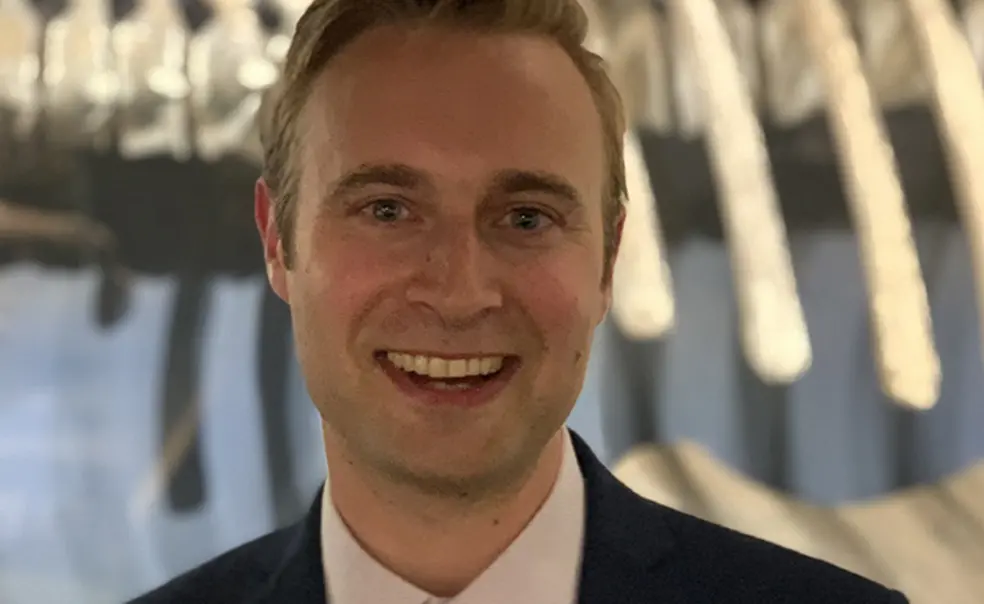Matthew Spellberg *17 Seeks New Ideas for a Better World
Spellberg plans to expand the Nuclear Age Peace Foundation’s mission beyond disarmament
Matthew Spellberg *17 has thought a lot about dreams. His comparative literature doctoral dissertation, “Dreaming for Others in Culture and the Novel,” as well as his undergraduate senior thesis at Harvard, focused on the role of dreams.
“I really wanted to look at this very complex and multifarious phenomenon from every possible angle,” he says. As a research fellow at the Harvard Society of Fellows, though, he recently started to realize that he wanted to work more in the world of reality by finding very real alternatives to the ways in which society exists now.
“We live in a society that is reckoning very uneasily with the legacy of colonialism and with a kind of hyper-industrialized economy that we see more and more is unsustainable and untenable,” Spellberg says. “We have, in my opinion, a very dark and deleterious relationship to the land and a very difficult relationship with our own history. I became very interested in solutions.”
Now, Spellberg has a new dream: He just started as president of the Nuclear Age Peace Foundation.
The organization was founded in the early 1980s to push for denuclearization, and Spellberg says the foundation comes out of a tradition of thinking about the problems of the world in a utopian fashion. Visionaries associated with the group have included Jacques Cousteau, Desmond Tutu, Queen Noor of Jordan ’73, and the Dalai Lama — “just an incredible range of people from different backgrounds trying to think about what a better world would look like,” says Spellberg.
His plan is to expand the foundation’s mission beyond nuclear disarmament and to turn the foundation into a think tank of sorts for long-term research “at the intersection of speculative theorizing and concrete policy recommendations.” He hopes to build out the foundation’s research capacity so that unexpected and transformative proposals can be made and fought for in concrete ways.
Though he says that the public discourse has been dominated by cynicism and a resignation to the status quo in recent decades, Spellberg says he’s eager to build up the foundation to be an institution that experiments and takes risks in the “landscape of ideas.”
“Some of those proposals may turn out to be right, some of them may turn out to be wrong, but I think we need to have a place that’s generating those big-picture speculative ideas that will then be present for people to make use of in the public sphere,” Spellberg says. “That sometimes takes a long time, but when the opportunity presents itself for a new system to come into being, it’s really important for a framework of ideas to already be in place.”
Spellberg says the lessons that prepared him most for his new role came from his time at Princeton, from both his involvement in the Interdisciplinary Humanities doctoral program, and his work and leadership in prison education. “Those two things at Princeton really gave me the kind of conviction and courage to think that ideas and practice can really talk to each other and don’t have to be separated by a big wall or an ivory tower.”
As he settles into his new position, he acknowledges that it’s “a totally new world for me,” and he’s going to be learning about his much more political and administrative role “on the fly.” Yet, his thoughts about dreams are never far behind.
“My work on dreaming is really about dreaming as a source of political agency,” Spellberg says. “Dreams are so unpredictable and so charged. Thinking about the imagination’s potential to literally imagine new worlds, to create new worlds every night in sleep, I think that can serve as a really important model for politics and one that, given the modern era, we have ignored to our grave peril.”












No responses yet